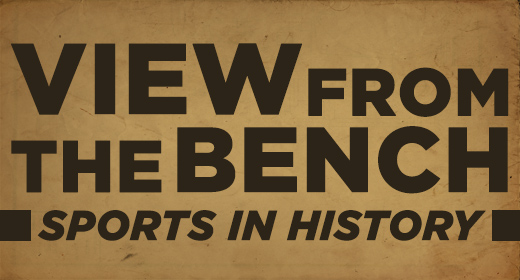Companies and organizations are constantly seeking the slogan that will transcend the product and become part of the societal lexicon. Over the years, there have been many catchy and iconic phrases that have become the identity of the entity. Examples have included “Have It Your Way” for Burger King to “Mmm, Mmm, Good” for Campbell’s Soup to “Got Milk” for the dairy industry. None have been as successful as “Just Do It” for Nike. So, when Little League Baseball went looking for its branding, one would expect that its slogan would encompass sportsmanship and effort. After all, aren’t those the core values of organized sports for youngsters?
Yet Little League Baseball did not go inspirational in their approach. Rather, they went the direct approach with something akin to one of the Ten Commandments: “I WON’T CHEAT.” Really? At a time in which dreaming big is the backdrop for so many successful individuals and entities, Little League Baseball abandoned inspiration and resorted to a message that every child should be taught by the time they first enter school. Why is that?
The answer is quite simple. “I Won’t Cheat” is the legacy of the most recent generation of baseball players. It was the brain trust of former MLB star Dale Murphy, one of the true good guys of baseball and a should-be Hall of Famer. Following his celebrated career with the Atlanta Braves, Murphy launched a foundation to combat the use of illegal performance enhancing substances in sports. The approach taken is to work with youngsters between the ages of 12 and 18 to instill the message. There is no question that the foundation’s goals are noble and its focus on youngsters who have not yet made the choice to use performance enhancing substances is likely the perfect target audience. I am 100% behind the initiative and salute those carrying out its mandate.
After all, SportsCenter has become as much about investigative reporting into illegal actions of athletes as it has been about game highlights.
But it frustrates me that we have departed from inspiring the next generation. While I agree with Charles Barkley’s 1993 Nike ad in which he noted that he was not a role model, our society has elevated professional athletes to a stature in which youngsters aspiring to future stardom in sports cannot help but to look up to them. Yet the behaviors of some of these “stars” are the kinds that parents would prefer to shield from their children. Unfortunately for those parents, they cannot prevent their children from being exposed to these players and their wrongdoings. After all, SportsCenter has become as much about investigative reporting into illegal actions of athletes as it has been about game highlights.
Today, I choose to give credit where credit is due for the “I Won’t Cheat” campaign of Little League Baseball. Thank you Barry Bonds, who had everything going for him, including great genetics from his father, but that was apparently not enough for him to strive to succeed on the strength of his God-given abilities. Thank you Ryan Braun, for cheating and then showing how to be a convincing liar. Thank you A-Rod, for demonstrating to the next generation how to assign fault to others but never take responsibility. You are among many who had the ability to use your skills as a springboard to leave the game and the community better than it was when you arrived, but have instead become the catalyst for reminding children not to cheat.
Quite a legacy, eh?


